G.O.B. Donates 477 Water Meters to Rural Villages
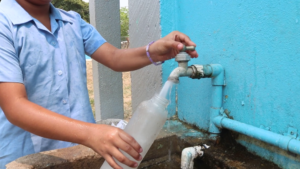 Over four hundred water and plumbing fixtures have been donated to the water boards of rural villages across Belize. Today, representatives from the water boards in the Cayo, Stann Creek, and Toledo districts gathered to receive donations from the Ministry of Rural Transformation. The equipment will allow each water board to connect households in their community to the village water system. Here’s News Five’s Britney Gordon with more details.
Over four hundred water and plumbing fixtures have been donated to the water boards of rural villages across Belize. Today, representatives from the water boards in the Cayo, Stann Creek, and Toledo districts gathered to receive donations from the Ministry of Rural Transformation. The equipment will allow each water board to connect households in their community to the village water system. Here’s News Five’s Britney Gordon with more details.
Britney Gordon, Reporting
Water is one of the basic needs every person needs to survive. But for residents of rural communities, access to that may be difficult to come by. For decades, villagers have relied on wells and naturally occurring water systems for drinking and washing. Now, the Ministry of Rural Transformation is bridging the gap between these communities and access to this human right with the donation of four hundred and seventy-seven water meters and plumbing equipment.
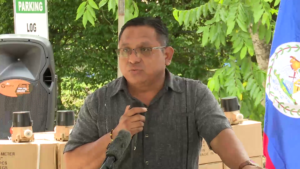
Valentino Shal
Valentino Shal, CEO, Ministry of Rural Transformation
“Most systems now provide water to their villages twenty-four hours a day. Before, people used to have water five hours a day, six hours a day, and sometimes the systems would go down for weeks. We don’t have those problems anymore. For instance, in villages like Santa Rosa, San Roman, every dry season. No water. San Antonio, Toledo. They get water three hours a day. It’s a very big village. You can’t live like that. You should not live like that.”
CEO IN the Ministry of Rural Transformation, Valentino Shal, explained that for years, local water boards have worked diligently to ensure that members of the community have access to water, but now, the government is ensuring that is accessible twenty-four seven.
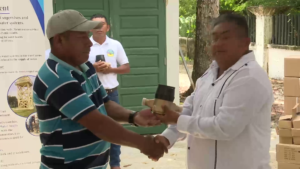 Valentino Shal
Valentino Shal
“But who will fix it? Who will change it? Who can we depend on? Nobody. Just ourselves. We have to do it ourselves. We have to do it together with the government and we have to do it together with our villagers and we have to do it together with our leaders and our board. And I think that we have been doing a very good job together, not just the government, but everybody here. I’m sure that you are proud of the work you have done in your own village, with your own water system. And so we will continue to push for the sustainability of these systems. We want water, people to have water twenty-four hours a day, every day of the year. We want water systems to have money in the bank. And we want people to make sure they’re very comfortable where whichever village they live in this country, it shouldn’t matter.”
The equipment is valued at one hundred and twenty-three thousand dollars. This year, the ministry has purchased and distributed one thousand, three hundred meters.
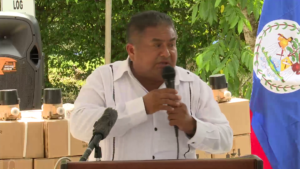
Oscar Requena
Oscar Requena, Minister of Rural Transformation
“One of the first things that we have done is to improve the efficiency of how we support water systems. We support them by drilling new wells, by cleaning existing wells, superchlorinating wells when they are contaminated, support our communities by putting in place water boards. Providing training and capacity building so that they can manage the systems. We have seen where we have donated thousands of meters to water boards to make them sustainable. And that is why we are doing this here today. Because the goal of this is to make our communities and water boards self-sustainable. What does that mean? It means that by using meters, people are going to pay a more equitable price more equitable price for the water that they use.”
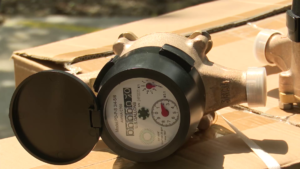 The meters will allow for expansion through new connections, water regulation, and conservation, which will help each water board improve its efforts at self-sustainability. Minister of Rural Transformation, Oscar Requena explained that with the installation of the systems, residents will be more conscious of the amount of water they consume.
The meters will allow for expansion through new connections, water regulation, and conservation, which will help each water board improve its efforts at self-sustainability. Minister of Rural Transformation, Oscar Requena explained that with the installation of the systems, residents will be more conscious of the amount of water they consume.
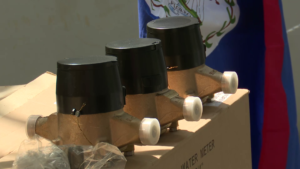 Oscar Requena
Oscar Requena
“Because without a meter, people go wash their foot, wash the car, wash whatever on the tap, just di run and nobody cares. But by having a meter, people are going to be more conscious. You know once I turn on that, the meter di run, and that means the cents di go and I have pay. It also means that it allows the water boards to collect more revenue. And that we have seen how that has changed where communities have implemented meters. Their income has increased, has expanded. And if your income increases, what does that mean? It means that you can take care of your expenditure. You can expand water. And when your systems go bad and you need to fix something, you have money to be able to do that. And you don’t have to be depending on the government or the Ministry of Rural Transformation. That’s the big goal.”
Minister of State, Ramiro Ramirez, highlighted the hard work of the members of the village waterboards and the Rural Community Development Organizations. He emphasized the need to provide stipends for the members on the ground ensuring that the needs of the public are met.
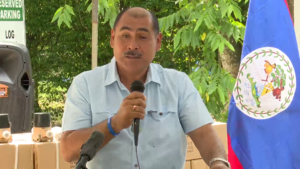
Ramiro Ramirez
Ramiro Ramirez, Minister of State, Ministry of Rural Transformation
“As he mentioned, now we have money and I’m glad that he mentioned that you guys deserve a better stipend. Because you work hard, all the insults goes to you. Once they don’t have water, they start to complain. But this ministry is doing our best and let us see who will put on Facebook that you guys are doing something good for them. So thanks to the RCDOs countrywide. Remember, meters are very, very good, very helpful. If you have a leakage in your system, that will show it because the price will go. It’s not only because a meter is just to affect you. The meter will never affect you. The meter will give you a service. Something that you don’t have to be twenty-four hours watching where is the leak. That will identify what is happening in your area.”
Britney Gordon for News Five.





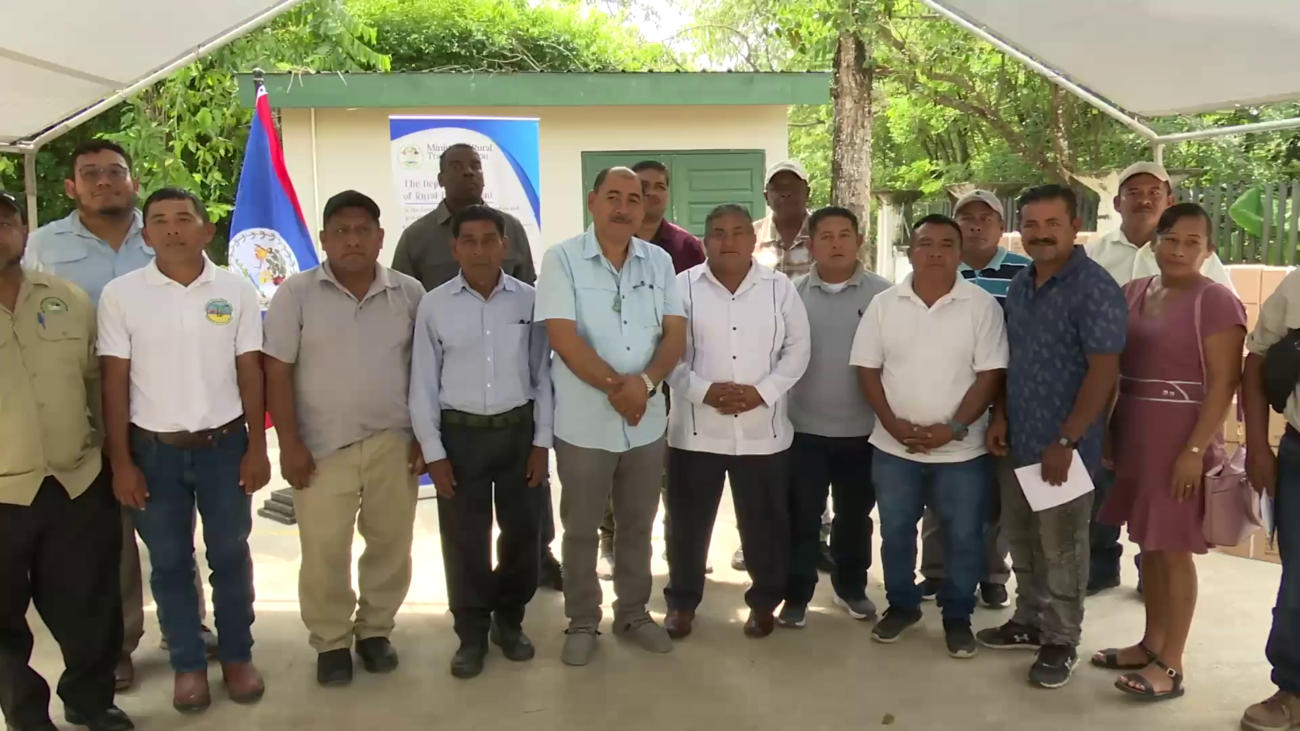

Facebook Comments